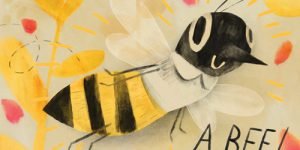This morning, while reading Dwarf Nose, the German fairytale by Wilhelm Hauff and Lisbeth Zwerger, I was reminded of Karen Klein, the New York grandmother and bus monitor who was severely taunted by a group of boys on their way to school. Like everyone else who viewed the youtube video (one of the little creeps filmed the dreadful thing), I longed for retribution equivalent to the emotional abuse heaped on the poor woman, but how do you answer such shamefulness? In fairy tales, wickedness is punished, usually in some completely excessive and often spectacularly lethal way, which is not really appropriate (or possible) in the real world. Nevertheless, actions had consequences. In Dwarf Nose, a young boy, described as a ‘fine, handsome son, well built and quite tall for his age’, scolds an old crone for saying nasty things about his mother’s cabbages. Granted, she started it, but when the boy is cursed with the physical attributes he cruelly ridiculed in the old woman, I thought to myself, serves you right, ya little git.
However, I am certain 19th century delinquency is not the point of Dwarf Nose. Indeed, this unusually long tale by Wilhelm Hauff, a contemporary of the Brothers Grimm, is rather nuanced in spite of the mêlée at the vegetable stand. It is also the inspiration for a beautiful series of illustrations by the great Lisbeth Zwerger, who wields her own brand of enchantment, albeit across a modern and considerably less flinty land.
Typical of many fairy tales of the era, Dwarf Nose begins with a family of modest means whose suffering is made infinitely more acute by an unfortunate encounter with the supernatural. To help make ends meet, the cobbler’s wife sells fruits and vegetables at the town market, and her ‘handsome’ son Jacob encourages the local housewives and cooks to buy her wares, often carrying their purchases home for them. He is rewarded well for his efforts, returning to his mother with small coins, or pieces of cake. An old woman in tattered clothes approaches the stand, and proceeds to berate the quality of the herbs and vegetables on display. Wishing to defend his mother, the boy calls the woman a few choice names, casting aspersions on everything from her appearance to her overall filth. The crone ends up buying six cabbages, and upon his mother’s insistence, the boy carries the bags to her cottage. Let the weirdness begin…








